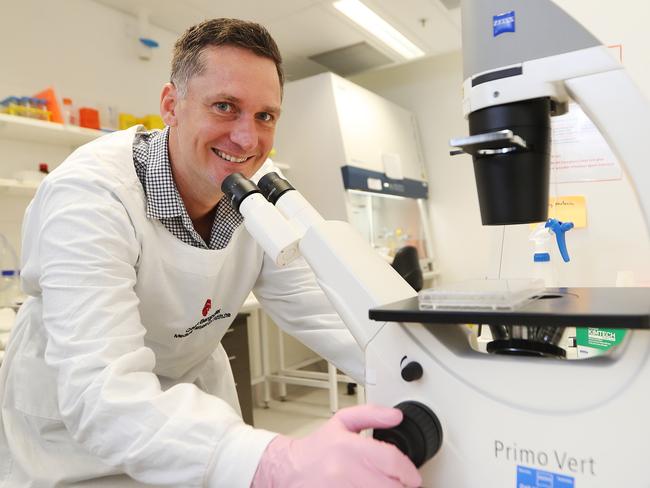QIMR Berghofer scientists create tiny beating human heart muscles
Groundbreaking research led by Queensland and Victorian scientists is tipped to change how drugs are developed in future and offer hope to those suffering from heart failure.
QLD News
Don't miss out on the headlines from QLD News. Followed categories will be added to My News.
AUSTRALIAN scientists have bioengineered tiny beating human heart muscles and used them to screen for potential heart regeneration drugs.
The research, led by Queensland and Victorian scientists, is tipped to revolutionise how heart drugs are developed in future.
Scientists at Brisbane’s QIMR Berghofer Medical Research Institute made mini-human heart muscles 1mm long and 0.5mm wide to test more than 100 compounds for their possible use as heart regeneration drugs.
Online tool to help assess skin cancer risk launched by QIMR Berghofer Medical Research Institute
Dissecting her childhood pets inspires an unusual career
Doctors identify a new type of twins
Lead researcher James Hudson, the head of QIMR Berghofer’s Organoid Research Laboratory, said scientists could measure the strength of the miniature heart muscles to analyse the potential side effects of the compounds.
Working with pharmaceutical company AstraZeneca, they identified two possible drug candidates that may help regenerate human heart tissue.
However, the researchers stress they have many more scientific hurdles to jump — and years of work ahead — before the molecules can be turned into drugs.

The study, published in the prestigious journal Cell Stem Cell, is one of the first to use “organoids” – miniaturised versions of a human organ – to screen for new drug candidates.
“It gives us the platform to test many different compounds,” Associate Professor Hudson said.
“Our study used thousands of miniature heart muscles that we grew in the lab and that beat and behaved like a human heart.
“These mini heart muscles have similar properties to a functioning human heart and they seem to respond to drugs in a similar way to the organ.”
Prof Hudson said potential new medications were usually first tested on heart cells, grown in cell culture plates in the laboratory, or in mice.
He said those tests did not always accurately replicate the effects on human hearts.
About 90 per cent of drugs that enter human trials show “very promising” results in the laboratory but either fail to work in patients or do not progress because of debilitating side effects.

The study’s co-lead author Enzo Porrello, of Melbourne’s Murdoch Children’s Research Institute, said the study showed that heart muscle would only regenerate if a drug treatment could turn on specific metabolic pathways — something that had not been shown before.
Associate Professor Porrello said the study provided hope for the development of the first therapies for heart regeneration, which would benefit patients with heart failure.
The researchers used human stem cells to bio-engineer the miniature heart muscles.
“We can make hundreds of heart muscles in the lab each week,” Prof Hudson said.
He said using them to screen for new medications had the potential to “make drug testing cheaper, quicker, easier and more accurate”.


